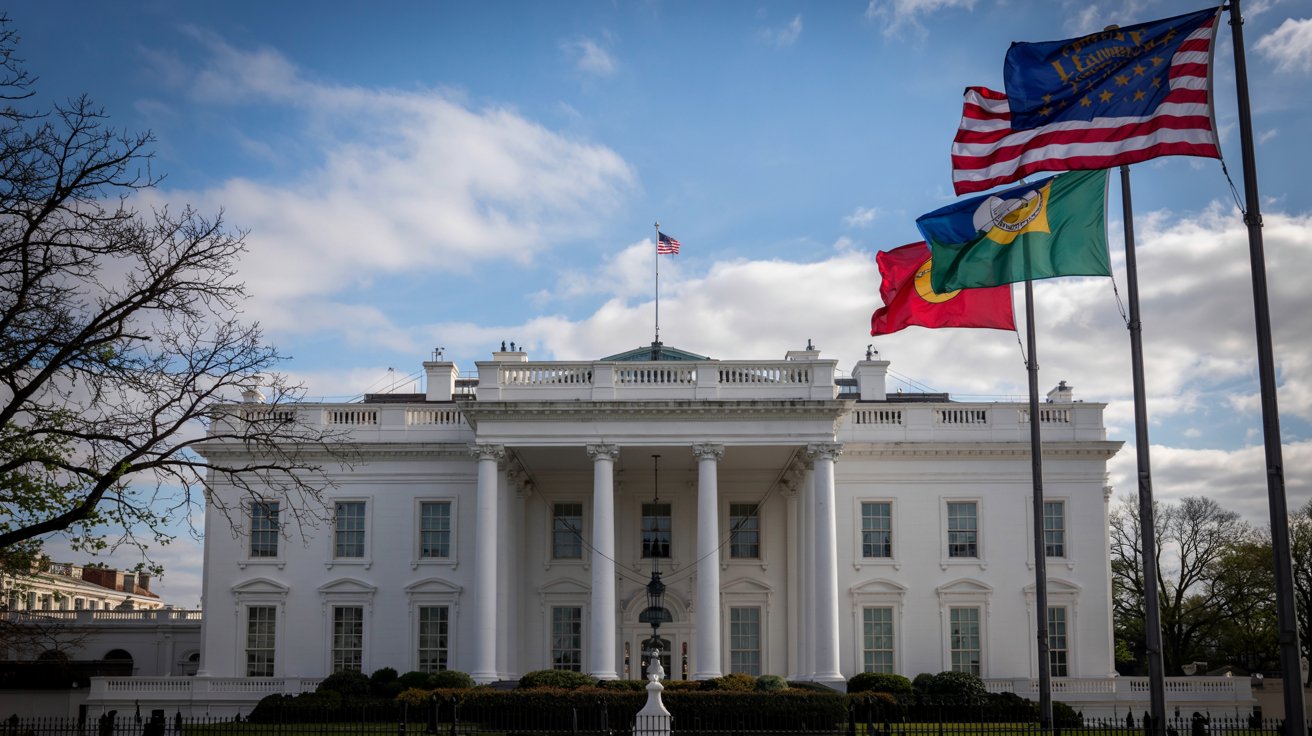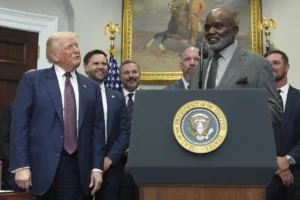The White House Sparks Controversy Over Russia & North Korea Tariff Exemptions, leading to widespread debate about the administration’s trade policies and their impact on the U.S. economy. While President Trump’s new wave of tariffs aims to penalize foreign competitors, Russia and North Korea have been notably excluded from the list. The administration defends this move by citing existing sanctions and minimal trade volume. However, critics argue that such exemptions raise questions about consistency and political motives.
Why Were Russia and North Korea Exempted?
Understanding why Russia and North Korea were excluded from the recent tariff wave is crucial. According to White House Press Secretary Karoline Leavitt, these two nations are already under strict U.S. sanctions that significantly limit trade. “Our sanctions on Russia preclude any meaningful trade, making additional tariffs unnecessary,” she explained. Similarly, North Korea faces economic restrictions that make tariffs redundant. Other sanctioned countries like Cuba and Belarus were also omitted for similar reasons.
However, experts point out inconsistencies in this approach. Other nations with minimal U.S. trade, such as Venezuela and Iran, were still included in the tariff list. This raises questions about whether political motives played a role in the decision-making process.
Comparison of Countries Affected by Tariffs vs. Exempted
| Country | Tariff Applied? | Reasoning |
|---|---|---|
| China | ✅ Yes | Trade imbalance & economic policies |
| Russia | ❌ No | Existing sanctions limit trade |
| North Korea | ❌ No | Economic restrictions already in place |
| Canada | ✅ Yes | Retaliatory tariffs in response to U.S. policies |
| European Union | ✅ Yes | Trade disputes and policy differences |
| Venezuela | ✅ Yes | U.S. sees it as an economic threat |
Economic and Diplomatic Impact
The selective tariff exemptions have raised concerns about their potential economic and diplomatic effects. Trade experts argue that the decision may be an attempt to maintain diplomatic relations with Russia amid ongoing geopolitical tensions. However, such a move could create friction with U.S. allies, who are affected by tariffs and may view these exemptions as unfair.
Potential Economic Effects
- Rising Costs for U.S. Businesses: Industries relying on imported goods may face price hikes.
- Consumer Impact: Higher prices on imported goods could contribute to inflation.
- Risk of Retaliatory Tariffs: Other nations may impose counter-tariffs, affecting U.S. exports.
From a diplomatic standpoint, the exemptions raise questions about whether trade policies are being used as geopolitical tools. While tariffs aim to protect American industries, selective implementation could undermine their overall effectiveness.
How Will This Affect White House U.S. Trade Policy?
The White House’s inconsistent tariff strategy sends mixed signals to international partners and American businesses. While tariffs are designed to strengthen the U.S. economy, applying them unevenly may reduce their effectiveness and create economic instability.
Key Trade Policy Considerations:
- Long-Term Market Stability: Uncertainty in tariffs could deter foreign investment in the U.S.
- Trade Relations with Allies: Strained relationships with European and Asian trade partners may weaken diplomatic ties.
- Domestic Economic Growth: If businesses pass tariff costs to consumers, it could slow economic expansion.
The global economy remains fragile, and maintaining a consistent trade strategy is essential for sustaining U.S. economic growth and global influence.
Conclusion
The White House’s decision to exclude Russia and North Korea from its latest tariffs has ignited debate about the rationale behind these exemptions. While officials argue that existing sanctions make additional tariffs unnecessary, critics question the consistency of such decisions. The broader implications on U.S. trade policy, diplomatic relations, and economic stability remain uncertain. As the situation unfolds, it will be crucial to monitor how these exemptions impact global trade and whether they contribute to or hinder economic progress.
[USnewsSphere.com / wsj]





